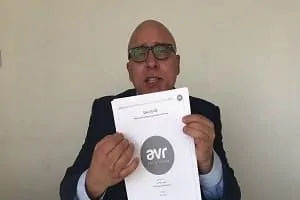As the buyer’s solicitors this is a document which we prepare and send to the seller. If we are the seller’s solicitor we ensure that the transfer deed has been properly prepared by the buyer. This is a vital document as it passes the ownership of the property from the seller to the buyer. It is dated with the completion date and will be sent to the Land Registry after completion. The Land Registry will use this transfer deed to change their records and show the buyer as the new owner of the property.
 Why AVRillo Conveyancing?
Why AVRillo Conveyancing? The conveyancing crisis and the single best way to get to exchange
The conveyancing crisis and the single best way to get to exchange Certainty. Speed. Collaboration
Certainty. Speed. Collaboration Pipeline Crisis
Pipeline Crisis It’s summer, so why do you have to think about Christmas?
It’s summer, so why do you have to think about Christmas? Control your profit, control your conveyancer before it’s too late.
Control your profit, control your conveyancer before it’s too late. Using a sledgehammer to crack a nut
Using a sledgehammer to crack a nut Why AVRillo Conveyancing?
Why AVRillo Conveyancing? Start saving for your rainy day before it’s too late.
Start saving for your rainy day before it’s too late. Conveyancers Control Your Profit. Not You.
Conveyancers Control Your Profit. Not You. Mind Reading
Mind Reading Conveyancing guide. Snakes and ladders!
Conveyancing guide. Snakes and ladders! Move Fast with AVRillo
Move Fast with AVRillo Make sure you are prepared early so you can get to exchange with a quote
Make sure you are prepared early so you can get to exchange with a quote Conveyancing guide. Snakes and ladders!
Conveyancing guide. Snakes and ladders! Move Fast with AVRillo
Move Fast with AVRillo Mind Reading
Mind Reading Conveyancers Control Your Profit. Not You.
Conveyancers Control Your Profit. Not You. The conveyancing crisis and the single best way to get to exchange
The conveyancing crisis and the single best way to get to exchange Start saving for your rainy day before it’s too late.
Start saving for your rainy day before it’s too late. Using a sledgehammer to crack a nut
Using a sledgehammer to crack a nut Control your profit, control your conveyancer before it’s too late.
Control your profit, control your conveyancer before it’s too late. It’s summer, so why do you have to think about Christmas?
It’s summer, so why do you have to think about Christmas? Pipeline Crisis
Pipeline Crisis Certainty. Speed. Collaboration
Certainty. Speed. Collaboration Make sure you are prepared early so you can get to exchange with a quote
Make sure you are prepared early so you can get to exchange with a quote














































